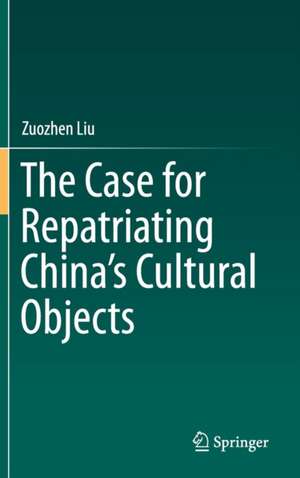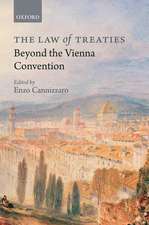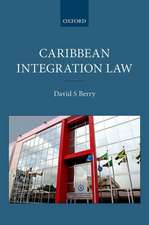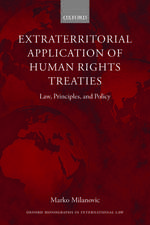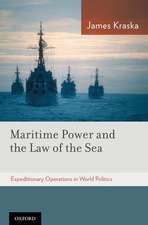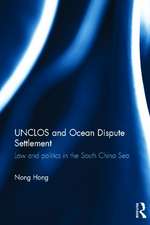The Case for Repatriating China’s Cultural Objects
Autor Zuozhen Liuen Limba Engleză Hardback – 4 mar 2016
| Toate formatele și edițiile | Preț | Express |
|---|---|---|
| Paperback (1) | 636.30 lei 43-57 zile | |
| Springer Nature Singapore – 25 apr 2018 | 636.30 lei 43-57 zile | |
| Hardback (1) | 642.51 lei 43-57 zile | |
| Springer Nature Singapore – 4 mar 2016 | 642.51 lei 43-57 zile |
Preț: 642.51 lei
Preț vechi: 755.88 lei
-15% Nou
Puncte Express: 964
Preț estimativ în valută:
122.95€ • 128.69$ • 102.33£
122.95€ • 128.69$ • 102.33£
Carte tipărită la comandă
Livrare economică 31 martie-14 aprilie
Preluare comenzi: 021 569.72.76
Specificații
ISBN-13: 9789811005954
ISBN-10: 9811005958
Pagini: 179
Ilustrații: XXIX, 179 p.
Dimensiuni: 155 x 235 x 13 mm
Greutate: 0.48 kg
Ediția:1st ed. 2016
Editura: Springer Nature Singapore
Colecția Springer
Locul publicării:Singapore, Singapore
ISBN-10: 9811005958
Pagini: 179
Ilustrații: XXIX, 179 p.
Dimensiuni: 155 x 235 x 13 mm
Greutate: 0.48 kg
Ediția:1st ed. 2016
Editura: Springer Nature Singapore
Colecția Springer
Locul publicării:Singapore, Singapore
Cuprins
Introduction.- The Loss of Cultural Relics in Modern Chinese History.- Law and Ethics of Cultural Objects.- Restitution through International Adjudication: Cases Studies of Looted Cultural Objects.- Restitution through Civil Litigation: A Case Study of the Dunhuang Manuscripts.- Cultural Identity: The Politics of Recognition.- Why Lost Cultural Relics Matter in China.- Conclusions and Recommendations.
Textul de pe ultima copertă
This book investigates China's demands for the repatriation of Chinese cultural relics 'lost' during the country's modern history. It addresses two main research questions: Can the original owners, or their rightful successors, of cultural objects looted, stolen, or illicitly exported before the adoption of the 1954 Hague Convention and the 1970 UNESCO Convention reclaim their cultural objects pursuant to remedies provided by international or national law? And what are the philosphical, ethical, and cultural considerations of identity underlying the international conventions protecting cultural objects and claims made for repatriating them? The first part of the book explores current positive legal regimes, while the second part focuses on the philosphical, ethical, and cultural considerations regarding repatriation of cultural objects. Consisting of seven chapters and an introduction, it outlines the loss of Chinese cultural relics in modern history and the normative framework for the protection of cultural heritage. It presents case studies designed to assess the possibility of seeking legal remedies for restitution under contemporary legal regimes and examines the cultural and ethical issues underpinning the international conventions protecting cultural heritage and claims for the repatriation of cultural heritage. It also discusses issues of cultural identity, the right to cultural identity and heritage, multiculturalism, the politics of recognition, cosmopolitanism, the right to cultural heritage, and other related issues. The concluding chapter answers the two research questions and offers suggestions for future research.
Caracteristici
Combines a number of fields to shed new light on the debate concerning repatriation of cultural heritage from a Chinese perspective, without losing scientific objectivity Features an engagingintroduction to China’s history and cultural identity, as well as thedestruction and looting of cultural property in the past Presents normativeresearch on cultural heritage law by evaluating the interests of culturalidentity Includes supplementary material: sn.pub/extras
